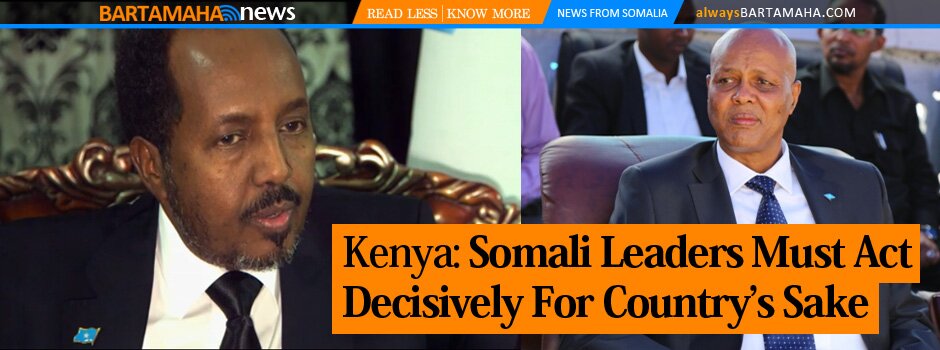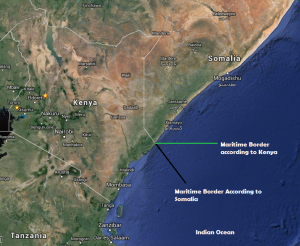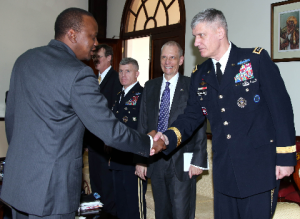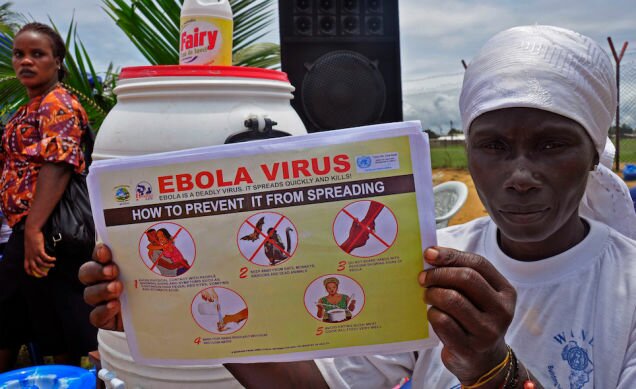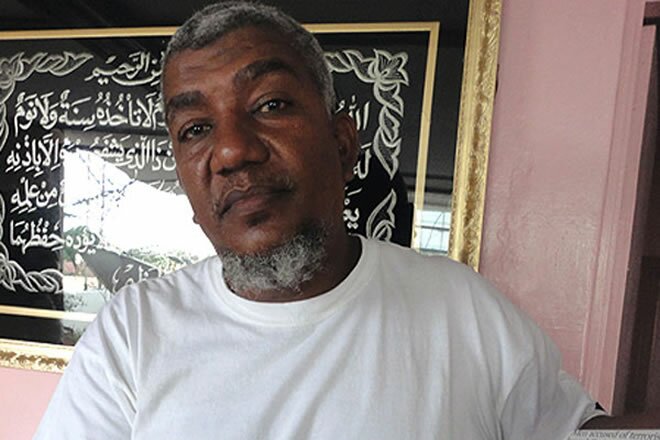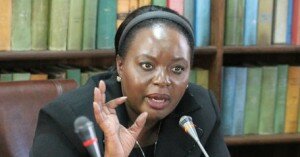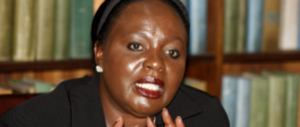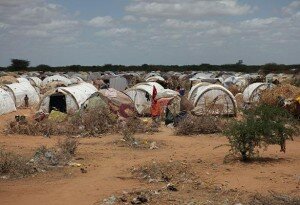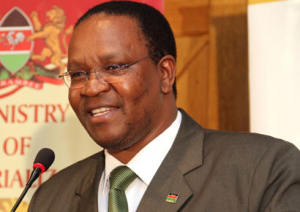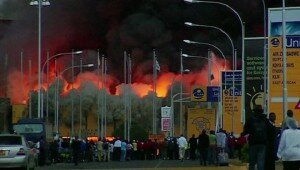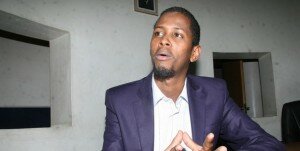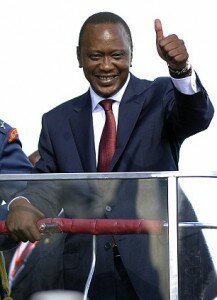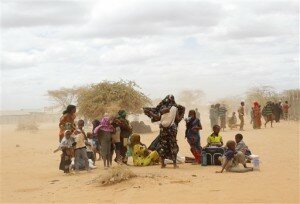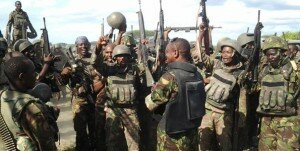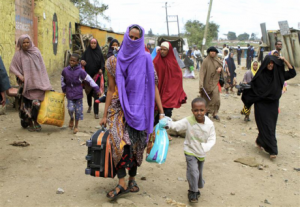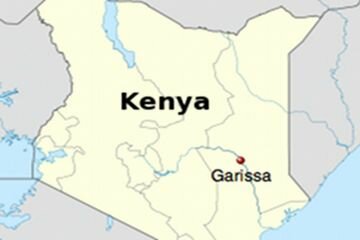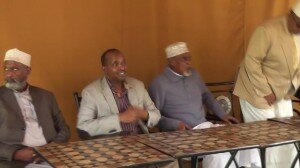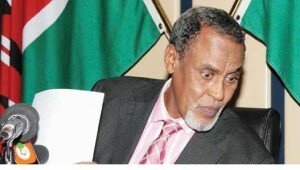Police nab 300 after Eastleigh blast
 Detectives are looking for the owner and occupants of a car they believe was used in Friday’s grenade attack outside a mosque in Nairobi’s Eastleigh neighbourhood.
Detectives are looking for the owner and occupants of a car they believe was used in Friday’s grenade attack outside a mosque in Nairobi’s Eastleigh neighbourhood.
They have also arrested more than 300 suspects in a massive operation launched after the attack that left area MP Yusuf Hassan hospitalised with fractured legs.
Most of the suspects arrested by police, Nairobi police chief Moses Ombati said, did not have identification documents.
Witnesses have told the police that a white car spirited away a man who was seen throwing the grenade, the Sunday Nationhas established.
“At the moment, we cannot say we have the key suspects, but we are following some clues. We have the registration number of the car used, and we are starting the search at KRA so that we can know its owner,” Mr Ombati said.
Five people died, and 37 others, including Mr Hassan, were injured in the 8 pm explosion outside Hidaya Mosque. (Read: Eastleigh blast death toll rises to five)
The victims were leaving the mosque after evening prayers.
Ten people were arrested near the scene of the blast minutes after the explosion, and more were arrested on Saturday as the operation was extended to the nearby Majengo estate.
By Saturday morning Mr Ombati said 82 people had been arrested. At the time, he said, he expected the number to rise.
“Most of those arrested were foreigners who did not have certified documents to show they are in Kenya legally. All of them will be interrogated, and various charges preferred as we look for the prime suspects,” he said.
More people have been arrested in similar operations since Wednesday after another attack in which one person died and eight others were injured.
Some of the suspects in the earlier swoop, most of them Somali nationals, were jailed after being charged. The court ordered they be repatriated after serving prison terms.
Mr Hassan, the MP for Kamakunji, was admitted at the Aga Khan Hospital with fractured legs and a cut in the hand, according to police.
MPs called for speedy investigations, saying the frequency of terrorist attacks in Eastleigh was alarming.
Nominated MP Mohamed Affey said: “We hope the government investigates and comes up with a conclusive solution to this matter.”
Mr Adan Duale (Dujis) said his injured colleague and his bodyguards were out of danger.
Makadara MP Gidion ‘Mike Sonko’ Mbuvi urged the government to conduct speedy investigations.
Mr Ombati said it was still too early to establish the motive for the attack and whether the MP was the main target.
Such attacks have become commonplace in Eastleigh over recent months, including one in September on St Polycarp Anglican Church in which a Sunday school boy was killed and others injured.
Some survivors of the Friday night mosque blast suggested it had been politically motivated and could have targeted the MP.
Mr Ibrahim Hassan, a survivor, said: “Moments after the prayers, the MP called for our attention where he campaigned for his re-election and encouraged us to register as voters in large numbers. I think this attack was targeting him and must have been from his opponents.”
The injured were taken to Aga Khan Hospital, Kenyatta National Hospital (KNH) and nearby Kilimanjaro Hospital.
Shoes and other personal items littered the bloody scene of the blast where the explosive device had created a deep hole.
Two people died at the scene, and three others succumbed to injuries while undergoing treatment in hospital.
There were 13 patients still admitted with various injuries at the time of going to press.
Another survivor, Mr Dhahir Hassan, said: “We had just finished our prayers, and I was headed home. Then I heard a boom, I saw a cloud of dust, and people started screaming. I walked a few minutes, then I realised my leg was all blood.”
“All this time, I was feeling no pain. Perhaps I would have walked all the way home without noticing a thing.”
He was among the eight people that were rushed to the nearby Al-Amin Nursing Home for first aid.
When Sunday Nation reporters arrived at Aga Khan Hospital, he had a bandaged leg.
Another survivor, Mr Abdi Farah, had a bandage on his back and leg.
He said: “I felt something hit my back, I initially thought it was a stone, but then the pain started.”
Doctors said he needed surgery to remove some of the shrapnel in his body.
“Most of those brought here had injuries to their heads, especially the two who died on the spot. Others had fractured limps and back injuries,” said Dr Abdi Mohammed, the medic on duty on Friday.
This was the third explosion in 30 days in the same Eastleigh area about four kilometres from Nairobi’s Central Business District.
Angry youths set fire to tyres to protest at the attack before police moved in and restored calm.
Police had to escort reporters to the nearby hospital where most victims received first aid because the protesting youths were threatening to attack and confiscate cameras and phones.
Police cordoned off the mosque overnight as crime scene experts collected samples for forensic analysis.
The explosion last Wednesday occurred near Joska supermarket in Eastleigh, which has become the main target of attacks carried out in Kenya by Somali-based Al-Shabaab militants.
Two weeks earlier, a device planted in a matatu plying the Eastleigh route exploded, killing nine passengers.
The mosque is located at the junction of two streets, one nicknamed ‘Jump’ Street because it has so many potholes. Pedestrians have to jump over puddles that form in them whenever it rains.
Source:- Sunday Nation
Comments
comments
 Calendar
Calendar





